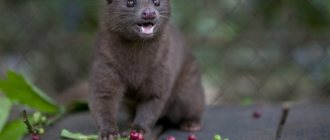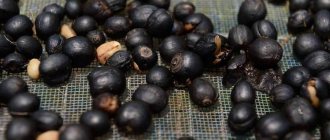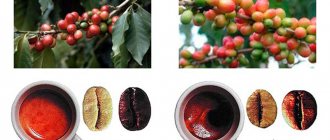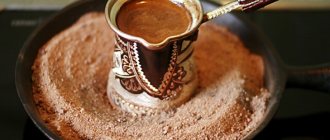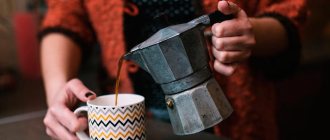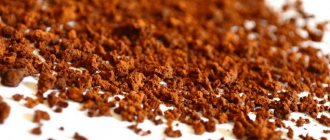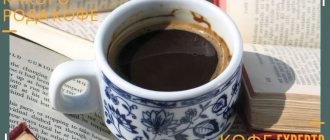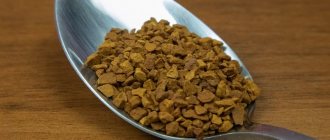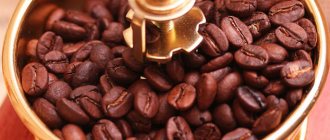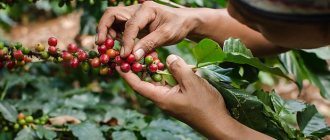The history of the creation of an exotic drink
Coffee obtained from elephant defecation is called Black Ivory, which means “black tusk”. The idea of collecting beans in manure, then roasting them and drinking them as a drink seems completely crazy, but there is a hidden meaning in the process.
The unique processing of coffee berries helps neutralize the bitterness in the finished drink. There is a similar production using musangs, which is losing popularity. Falsified products appeared on the world market, and in pursuit of profit, farmers began to catch wild animals and imprison them in captivity in the hope of a substantial jackpot from the sale of grains.
- Don't miss: How to choose the right coffee beans
Canadian coffee producer Blake Dinkin decided to combine ethical principles and high quality products, for which he needed to completely rethink the process of obtaining exotic beans.
Initially, the businessman was also involved in the production of “civet” coffee, but later abandoned production, which was contrary to nature. The Kopi Luwak brand has been compromised by numerous counterfeits and cases of cruelty to animals. The founder of Black Ivory Coffee Company managed to preserve the natural characteristics of the beans and drink, avoiding a repeat of the bitter experience with musang.
It was not by chance that elephants were chosen as the foundation of production:
- They are herbivores that provide maximum fermentation when producing grains.
- Elephant dung yields much more coffee than the same process with musangs, without the need to force-feed the animals.
- Elephants' main diet consists of leafy plants and fruits. As a result of fermentation at the stage of digestion of food in the intestines, sugar is released, which gives the finished grains a pleasant taste.
The production was founded in 2012 and is located on the territory of the Thai Nature Reserve. The first “harvest” amounted to about 70 kg, which quickly sold out among gourmet buyers.
In the green hills of northern Thailand, a herd of 20 elephants defecate some of the world's most expensive coffee.
Said to have an earthy smell and smooth taste, this new exotic drink is made from grains eaten by Thailand's elephants and extracted from elephant dung the next day. The reactions that occur in the elephant's intestines give coffee what the creator of the variety calls a unique taste.
Whether disgusting or strangely alluring, this coffee is not only one of the most unusual types of coffee in the world, but also one of the most expensive. It costs $1,100 per kilogram.
For now, only the rich or those who travel a lot can try this coffee, called Black Ivory. Last month, it appeared in several high-end hotels in far-flung corners of the world - first in northern Thailand, then in the Maldives and then in Abu Dhabi - for about $50 a cup.
Associated Press reporters traveled to the Golden Triangle, an area historically famous for producing drugs stronger than coffee, where the new drink is being made, to see the proboscis baristas at work - and taste the finished product from the elegant cup.
In the misty mountains on the border between Thailand, Laos and Burma, the creator of coffee, citing data from biological research, answered our main question - why elephants?
“When an elephant eats coffee, its stomach acid breaks down the protein that makes the coffee taste bitter,” says Blake Dinkin, who spent $300,000 developing Black Ivory. “The end result is a very smooth drink, without the usual bitterness.”
This is a kind of analogue of “civet coffee” or “kopi luwak” - another exorbitantly expensive variety of coffee extracted from the excrement of ferret-like civet cats. However, the powerful elephant stomach gives coffee additional properties.
The elephant is something like a living slow cooker. It takes 15 to 30 hours to digest the beans, which are brewed with bananas, sugar cane and other components of the elephant's vegetarian diet, imbuing it with a unique earthy and fruity aroma, says the 42-year-old Canadian, who used to make civet coffee.
“I believe there is a natural fermentation process going on in the elephant’s stomach,” Dinkin said. “This gives the coffee an aroma that other varieties don’t have.”
Staff at the jungle sanctuary where the elephant herd lives were initially skeptical of the idea.
“The first thing I thought about was caffeine—would elephants get used to it and become addicted to coffee? says John Roberts, animal manager at the Golden Triangle Asian Elephant Foundation, a sanctuary for rescued elephants that now receives 8% of coffee proceeds and uses it to protect the health of the herd. “As far as I can tell, no harm is being done to the elephants.”
Dinkin said that before presenting his proposal to the foundation, he recruited a Canadian veterinarian to the project, who tested the blood of zoo elephants and found that they did not absorb caffeine from raw coffee berries.
“I thought it would be worth a try because we're looking for any way we can make money to support the elephants,” said Roberts, who estimates the cost of each elephant at about $1,000 a month.
Commenting on the exorbitant price of coffee, Dinkin says, half-jokingly, that elephants are extremely inefficient workers. To get 1 kilogram of Black Ivory, you need 33 kilograms of fresh coffee berries. Most grains are chewed, broken, or lost in tall grass after defecation.
In addition, the process as a whole is extremely labor-intensive and requires manual labor. Black Ivory uses only Arabica beans, hand-picked by women from a local tribe on a small mountain plantation. After the elephants have done their work, the wives of the elephant mahouts collect the dung, knead it and extract coffee from it. The berries are thoroughly washed and coffee beans are extracted from them, which are then dried in Bangkok.
Of course, elephant coffee became the butt of jokes. Dunkin shared a few with us: “coffee crap,” “good to the last poop,” “elephant poop coffee.”
Even Jay Leno, far away in Hollywood, touched on this topic.
“What’s interesting to me,” he asked, “who was the first to see coffee beans and elephant dung and say, “But if you grind this and drink it, it’ll probably be delicious?”
However, all jokes aside, people do drink Black Ivory. The first batch of 70 kilograms has already been sold out. In 2013, Dinkin hopes to sell six times as much coffee. He is counting on buyers who are relatively wealthy, open-minded, adventurous, and eager to have a story to tell.
So far, Black Ivory is only served in a few expensive Anantara hotels, including in the Golden Triangle next to the elephant foundation.
According to an American couple who tried the coffee at a hilltop hotel bar recently at sunset, the drink exceeded their expectations.
“I thought he was going to be disgusting,” says Ryan Nelson, 31, of Tampa, Florida. - But I liked it. It was something special. There’s something strange about this coffee that I can’t quite define.”
His wife Ashley, a biologist and coffee lover, called Black Ivory "a fantastic product for the environmentally conscious consumer" because the coffee helps fund elephant conservation.
But what does it taste like?
“Very interesting,” she says, choosing her words carefully. “Something unusual.”
“I don’t think I could afford to drink it every day on my zookeeper’s salary,” she says. “But I certainly enjoy drinking it on holiday, sitting here and admiring the elephants.”
InoSMI materials contain assessments exclusively of foreign media and do not reflect the position of the InoSMI editorial staff.
Taste characteristics of coffee
During the process of digestion, Arabica does not lose its unique, recognizable sourness; otherwise, the taste of coffee only benefits. The assessment of the main characteristics on a five-point scale is presented in the table:
| Saturation | 4 |
| Balance of taste | 4 |
| Bitterness | 1 |
| Fortress | 3 |
| Kislinka | 4 |
Rich, soft coffee with subtle fruity notes captivates gourmets from the first sip of the aromatic drink. Some tasters noted the taste of milk chocolate with a pleasant nutty aftertaste.
The world's most expensive coffee made from dung
Most of the most expensive varieties of coffee in the world are obtained by exploiting “our little brothers.” And you can’t even ask for better assistants.
The fact is that animals and birds are endowed by nature with amazing extrasensory perception, which tells them which coffee fruits are the ripest and tastiest, and which ones are best ignored.
Human assistants include lemurs in Bali, monkeys in Indonesia, elephants in Thailand, bats in Costa Rica.
Kopi Luwak made from musang animal poop
The most famous among these varieties is Indonesian coffee , which is called Kopi Luwak. The person’s “partner” in this case is the musang animal, or Malayan palm marten, which lives in Southeast and South Asia.
Gourmets consider this type of coffee to be the drink of kings, although they know very well what it is made from - excrement.
However, this is not entirely true. They are made, of course, from coffee beans, but only after they are eaten by a cute animal, go on a journey through its digestive system and again end up outside to undergo the necessary “sanitation” in skillful human hands.
Coffee beans are the favorite food of musangs. They will never eat “greens”; they will choose the ripest and most delicious fruits. They will be found on the tree and under it - at least a kilogram in one day.
Scientists have found that of this total amount of coffee beans, only 5 percent remain undigested, and they leave the animal’s body safe and sound.
However, while inside the animal, they manage to undergo treatment with gastric juice and an odorous substance called civet. Both are good for the grains.
They are thoroughly washed, dried, and fried. Manufacturers guarantee 100% purity and safety of the finished product, although the details of raw material processing are kept secret.
Those who have tried this coffee note a whole bouquet of exquisite tastes - vanilla, dark chocolate and caramel.
Why accumulate Luwak so expensive
Most people think that the highest price of Luwak coffee is justified by the fact that local farmers have to rummage through animal feces. This work is not the most pleasant, but the reason for the highest price lies entirely in the wrong place.
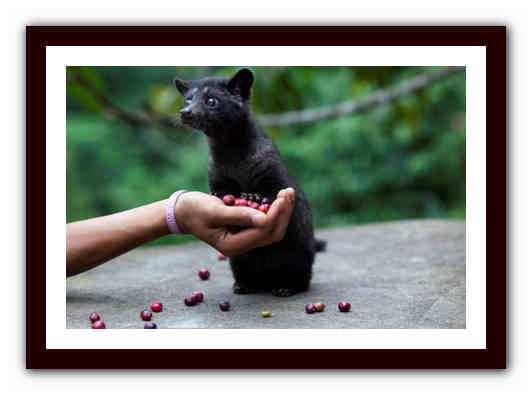
Peasants look for processed material only in the poop of feral animals, because musangs do not want to eat coffee beans, being involuntary. The secret of the highest price of the product is explained by the following:
- the ripest grains are collected only by hand,
- Luwaks are given about 200 grams of coffee beans two or three times a week, on other days they are fed noodle soup and chicken, meat with rice, bananas and corn,
- animals are considered to be very selective, choosing only ripe fruits,
- Musangs are often examined by a veterinarian, who carefully monitors their health.
Real Luwak coffee has a spicy taste with light notes of chocolate and caramel. The most expensive drink in the world costs about 600 bucks per kilogram, the cost for the most expensive Vietnamese version of coffee can reach up to 6,600 US dollars per kilogram.
Watch another video about musang.
Coffee made from feces is the most expensive in the world. What animals “make” elite varieties of coffee.
High-quality coffee is not an inexpensive pleasure. Therefore, a product that is sold at a low cost does not inspire confidence, because in most cases it is a fake or made from poor raw materials. But the prices for coffee made from animal feces are amazing and perplexing to the average inhabitants of the planet. Only a few can afford this exclusive product.
Little-known facts about Accumulate Luwak
There are an unlimited number of legends and speculations surrounding the origin of Asia’s most famous product and the process of its production. The Global Society for the Protection of Animals states that the luwak is an animal that lives in captivity, in most cases in cages where it does not have the ability to move freely.
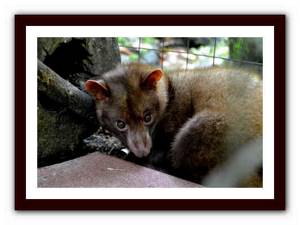
While the wealthy world savors the most expensive coffee in the world, which is called nothing more than “a miracle from a wild land,” animals suffer. Local inhabitants deny this fact and say that the Luwak is an animal that, while in captivity, will not eat coffee beans.
Besides this, there are still several facts that not enough people know about.
- If living creatures are abandoned without control, the animal may feel unwell due to large quantities of coffee, because the fruits do not have time to digest due to the very large portion of what was eaten.
- They care about the Luwak like the royal family. A special veterinarian often inspects the health of the animals, and each of the animals has its own medical card and medical history.
- How exactly the idea of how to prepare the drink came about, no one knows. The inhabitants of the islands tell a fascinating legend. The first coffee plantations on the islands of Sumatra and Java were astronomically expensive. Just as it was forbidden to take the stones with you when mining diamonds, plantation workers were strictly forbidden to take the prepared product home. When the local inhabitants accidentally found musang poop with undigested grains, it was firmly decided to wash it and taste it. Surprisingly, this particular drink turned out to be much tastier than regular coffee. The limited amount of the product instantly made the drink not only the most expensive, but also the most common type of coffee in the world.
- Edward Cole (Jack Nicholson) from the movie "Until I Played the Drawer" drank Accumulate Luwak before he learned how it was made. His new friend Carter Chambers (Morgan Freeman), on the contrary, was interested in how the drink was made and openly enjoyed the process of making it.
- Only two species of animals eat coffee beans: musang and elephant. But, unlike luwak elephants, coffee is mixed with their food.
- Vietnamese Luwak coffee is considered relatively cheap in Southeast Asia. It can be tested in local cafes or purchased in specialized stores. The best gift you can bring to friends from a trip to Asian countries is coffee from Vietnam. Luwak coffee is also called Chon in Vietnam.
